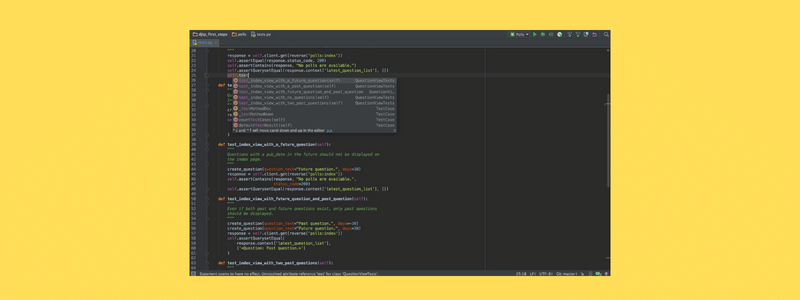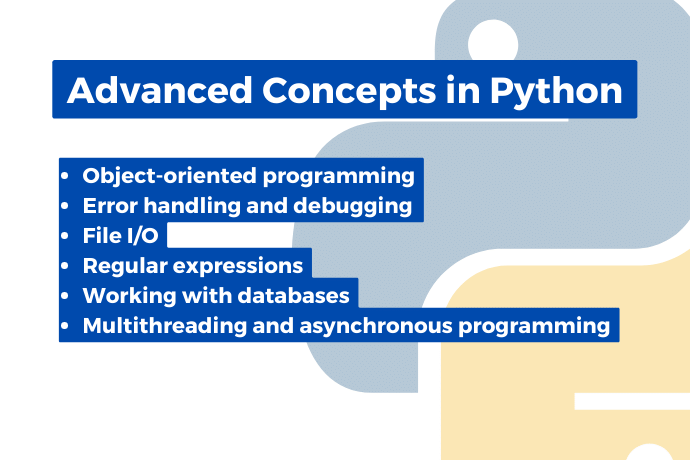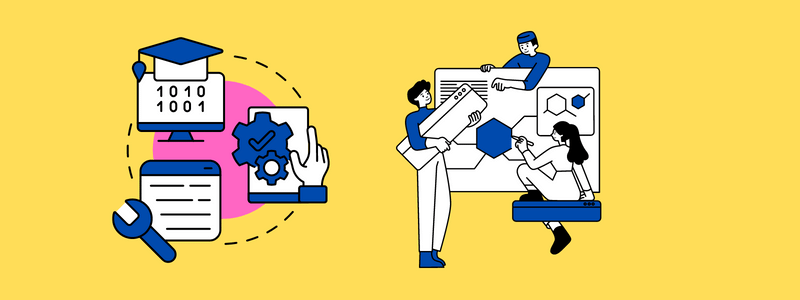At A2N Academy, we are passionate about helping individuals achieve their career goals in the field of programming and technology. If you are looking to become a Python developer, you've come to the right place! In this comprehensive guide, we will cover everything you need to know to become a successful Python developer, from the basics of the language to the best tools and resources for advancing your skills.
So, let's get started!
Understanding Python and its Applications
Python is a high-level, open-source programming language that is widely used for a variety of applications, including web development, scientific computing, data analysis, and artificial intelligence. The language is known for its simple, intuitive syntax and easy-to-read code, making it an excellent choice for beginners.
Setting up Your Development Environment

The first step in becoming a Python developer is to set up your development environment. You will need a computer and an editor or integrated development environment (IDE) to write and run your code. Some popular IDEs for Python development include PyCharm, Visual Studio Code, and IDLE.
Learning the Basics of Python
Once you have your development environment set up, it's time to start learning the basics of Python. You will want to familiarize yourself with the language's syntax, data types, variables, and control structures. Some of the essential topics to cover include:
-
Variables and data types
-
Strings, numbers, and booleans
-
Operators and expressions
-
Control structures (if statements, loops, etc.)
-
Functions and modules
Mastering Advanced Concepts in Python

As you become more proficient in Python, you will want to dive into more advanced python concepts such as:
-
Object-oriented programming
-
Error handling and debugging
-
File I/O
-
Regular expressions
-
Working with databases
-
Multithreading and asynchronous programming
Building Projects with Python

The best way to learn Python is by building python projects with the language. This will give you the opportunity to put your skills into practice and see the results of your work. Some project ideas to consider include:
-
Building a GUI
-
Scraping and analyzing data from websites
-
Building a machine learning model
-
Automating a task with Python
-
Creating a desktop application
Skills Required to be a Python Developer
Becoming a successful Python developer requires more than just a basic understanding of the language. Here are some of the essential skills you will need to develop:
-
Strong Problem-Solving Skills: Python developers need to have strong problem-solving skills to be able to identify and solve complex issues. They must be able to analyze and understand complex systems, and develop creative solutions to meet their client's needs.
-
Familiarity with Object-Oriented Programming: Python is an object-oriented programming language, so it's important to have a good understanding of the concepts of inheritance, polymorphism, and encapsulation.
-
Good Knowledge of Data Structures and Algorithms: To be an effective Python developer, you need to have a strong understanding of data structures and algorithms. This includes knowledge of data structures such as arrays, linked lists, and trees, as well as algorithms such as sorting, searching, and recursion.
-
Experience with Web Frameworks: Many Python developers work on web applications, so it's important to have experience with web frameworks such as Django or Flask. You should also have a good understanding of HTML, CSS, and JavaScript.
-
Familiarity with Database Management: Most web applications require a database to store data, so it's important to have experience with database management systems such as MySQL, PostgreSQL, or MongoDB.
-
Strong Communication Skills: Python developers must be able to communicate effectively with their clients, team members, and stakeholders. They must be able to explain technical concepts in simple terms, and present their work in a clear and professional manner.
-
Continuous Learning: The field of technology is constantly evolving, and the same is true for Python. It's important to stay up-to-date with the latest developments in the language and its ecosystem, and to continuously improve your skills and knowledge.
Building Your Professional Network
Networking is an essential part of any career, and the field of programming is no exception. Building a strong professional network will help you stay informed about the latest developments in the industry and connect with others who share your interests. You can attend local meetups, join online communities, and participate in online forums to connect with other Python developers.
Building Your Portfolio
Your portfolio is a critical tool for showcasing your skills and experience to potential employers. As you build projects with Python, be sure to document your work and add it to your portfolio. This will help you stand out from other candidates and demonstrate your expertise in the language.
Roles and Responsibilities of a Python Developer
The role of a Python developer can vary depending on the specific needs of their client or company. However, some of the common responsibilities include:
-
Designing and Developing Applications: Python developers are responsible for designing and developing applications using Python. They must understand the client's requirements, and develop solutions that meet their needs.
-
Writing Clean and Efficient Code: Python developers must write clean and efficient code that is easy to maintain and debug. They must also ensure that their code is well-documented and meets industry standards.
-
Testing and Debugging Applications: Python developers are responsible for testing and debugging their applications to ensure that they are free of errors and meet their client's requirements.
-
Collaborating with Teams: Python developers often work in teams, so it's important to have strong collaboration skills. They must be able to work effectively with others, and communicate their ideas and progress in a clear and professional manner.
-
Maintaining Applications: Python developers must be able to maintain existing applications, and make changes and updates as needed. They must also be able to integrate new technologies and features as they become available.
-
Providing Technical Support: Python developers may be responsible for providing technical support to their clients, helping to troubleshoot issues and provide solutions as needed.
If you are planning to become a python developer, you should also check out the important questions asked in a python interview.
Conclusion
In conclusion, becoming a Python developer requires hard work and dedication, but the rewards are well worth it. With the right tools, resources, and support, you can build a successful career in Python development and make a positive impact in the field. And A2N Academy is here to support you every step of the way.
Our team of experienced instructors and career coaches will provide you with personalized feedback, guidance, and resources to help you achieve your career goals. Whether you are a beginner or an experienced programmer, we have the expertise and knowledge to help you succeed.
So, if you're ready to take your Python development skills to the next level, join A2N Academy’s Python online course today and start your journey towards becoming a successful Python developer. With our support and guidance, you can build the skills, knowledge, and experience you need to make a lasting impact in the industry.